Forum with legislators explores rural school aid, recreation tax and more
| Published: 02-22-2024 4:16 PM |
CHARLEMONT — State Sen. Paul Mark and state Rep. Natalie Blais fielded questions on rural school aid, potential recreation taxes, affordable housing and more during a recent public forum attended by roughly 20 residents.
The “ReMarks and Refreshments” forum at Charlemont Town Hall, one in a series of forums that Mark is organizing in an effort to reach all 57 communities he represents in the Senate, also allowed the public to offer comments on opportunities and challenges facing the region.
“It’s very important to have these discussions where people can just come in and talk about their concerns,” Blais said. “It helps make sure that we’re doing our jobs.”
Friday’s conversation began with an update on rural school aid. Mark explained how last August, Gov. Maura Healey signed a budget for fiscal year 2024 that provided an extra $9.5 million for rural school aid compared to fiscal year 2023’s numbers, which stood at around $5.5 million.
With the rural school aid line item now standing at $15 million, Mark said Healey has proposed that this number “act like a baseline” even though “we’re looking at a tougher revenue year.”
“If we were having this conversation a year ago, I would have really felt confident saying we might get up to $20, $25 million,” Mark said during the discussion. “As we sit here this year, I would really love if we could get that up to $20 million, and if we can get beyond, so much the better.”
Talking about rural schools sparked a conversation about affordable housing in rural Massachusetts.
Attendees expressed concern over housing costs. Blais said “the affordable housing production programs that have been put in place in the commonwealth have not worked for rural communities” based on the economies of scale for housing units, which she said “is really high.”
Article continues after...
Yesterday's Most Read Articles
 More than 130 arrested at pro-Palestinian protest at UMass
More than 130 arrested at pro-Palestinian protest at UMass
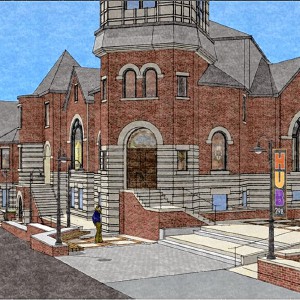 Public gets a look at progress on Northampton Resilience Hub
Public gets a look at progress on Northampton Resilience Hub
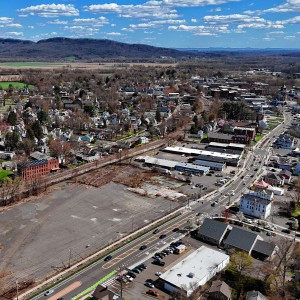 Northampton bans auto dealerships near downtown; zone change won’t affect Volvo operation on King Street
Northampton bans auto dealerships near downtown; zone change won’t affect Volvo operation on King Street
 UMass basketball: Bryant forward Daniel Rivera to be Minutemen’s first transfer of the offseason
UMass basketball: Bryant forward Daniel Rivera to be Minutemen’s first transfer of the offseason
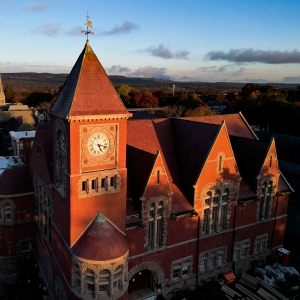 Town manager’s plan shorts Amherst Regional Schools’ budget
Town manager’s plan shorts Amherst Regional Schools’ budget
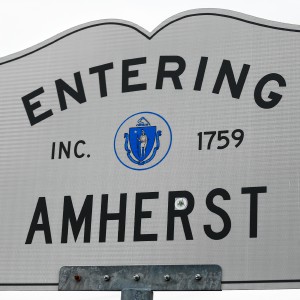 Police respond to alcohol-fueled incidents in Amherst
Police respond to alcohol-fueled incidents in Amherst
“There’s economies of scale that end up being a challenge for rural communities, generally speaking,” Blais told the public.
“We’ve been trying to fix that and I will say that it is something that we are trying to shine a light on in this new housing act.”
The act Blais was referring to is Healey’s $4.13 billion Affordable Homes Act, which, in conjunction with recently reauthorized housing tax credits, will allow for the creation of more than 40,000 homes while also rehabilitating, preserving or improving over 27,000 existing homes.
According to Blais, the hope is to provide municipalities with grant programs and to make sure “that the number of housing units is something that is actually attainable for a rural community.”
“We’re really glad that the governor is addressing the affordable housing needs,” said Blais. “At least we have a bill that’s moving, that would provide us with the ability to insert the tools in for rural communities.”
A question about forming a fire district encouraged Blais to mention two additional bills that are being worked on in the realm of public safety, including bill H.2449 that would allow a member of a police or fire department to serve until the age of 72. Under current state law, emergency services personnel cannot work past the age of 65. However, through a piece of special legislation known as a home rule petition, they can seek approval to work until age 70.
Additionally, Blais said she and her colleagues have been trying to advance a municipal and public safety building authority that would recognize “many of our municipal buildings [that] are crumbling” and would help ease the creation of new public safety facilities.
People were also curious about Blais and Mark’s joint petition, known as bill H.2713, that would authorize the town of Charlemont to establish a 3% tax on commercial recreation services such as skiing, ziplining, whitewater rafting, kayaking and more.
Mark said the proposed recreation tax “has passed the House of Representatives multiple times” but “has never made it to the governor’s desk.” Blais said the bill is now under consideration by the Joint Committee on Municipalities and Regional Government and a hearing is scheduled at the end of February.
“I feel better than I’ve ever felt,” Mark said about the bill’s progress.
The last topic of discussion on Friday was the Affordable Connectivity Program, which a member of the audience said has been a “fantastically successful” program that gives low-income people $30 a month toward their internet bill. However, given that the program was initially funded using emergency COVID-19 relief funding, the attendee asked if it might find stable funding in the future. Mark replied that having affordable internet “is a statewide issue,” so conversations around retaining this program continue.

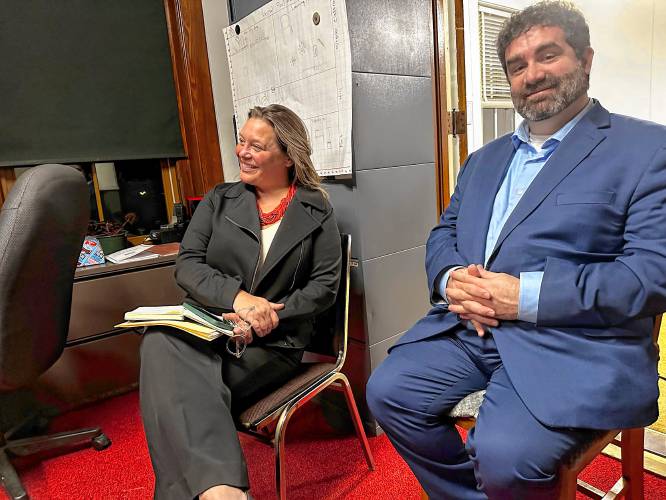
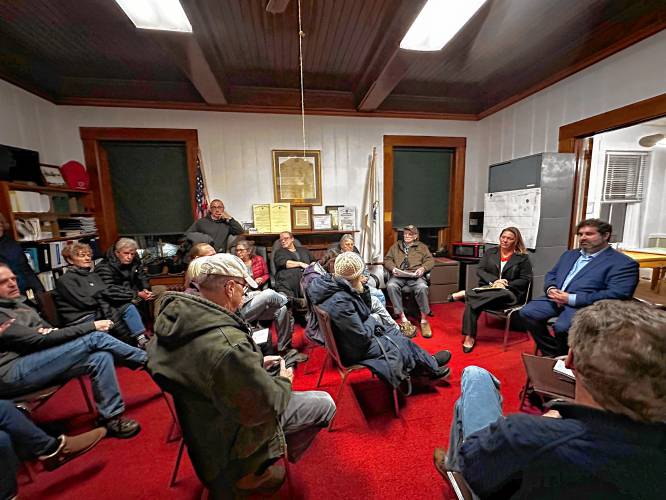
 State Senate budget funds free community college for all
State Senate budget funds free community college for all ‘We can just be who we are’: Thousands show support for LGBTQ community at Hampshire Pride
‘We can just be who we are’: Thousands show support for LGBTQ community at Hampshire Pride Doors open at Tilton Library’s temporary home at South Deerfield Congregational Church
Doors open at Tilton Library’s temporary home at South Deerfield Congregational Church Area property deed transfers, May 2
Area property deed transfers, May 2
